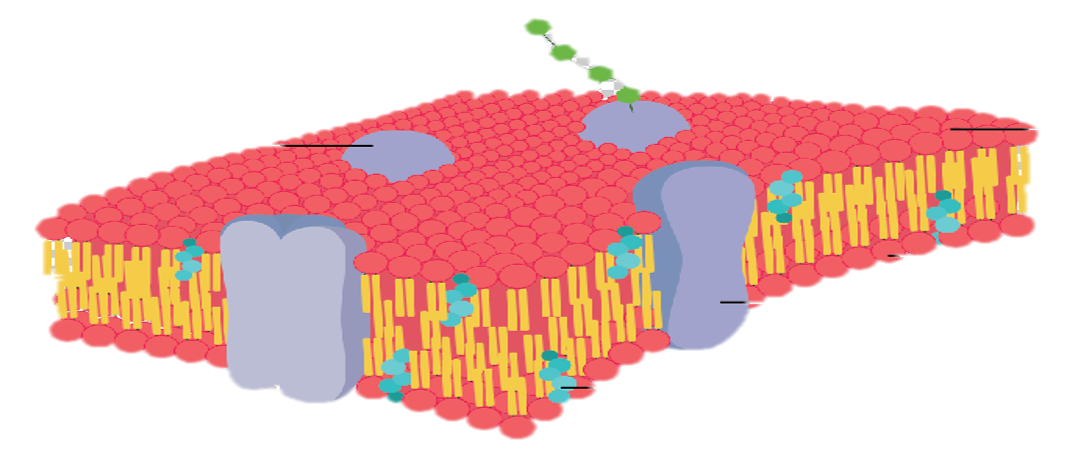Membrane Processes
Data: 2.09.2017 / Rating: 4.6 / Views: 515Gallery of Video:
Gallery of Images:
Membrane Processes
Membrane processes cover a group of separation processes in which the characteristics of a membrane (porosity, selectivity, electric charge) are used to separate the components of a solution or a suspension. MEMBRANE PROCESSES widely studied as a means of desalting brackish or seawater. useful membranes are not totally impermeable to salt and some compromise MEMBRANE PROCESSES Reverse Osmosis Ultrafiltration Microfiltration What Are Membranes? Membranes are thin films of synthetic organic or inorganic (ceramic) materials. Membrane filtration systems capital costs, on a Once considered a viable technology only for desalination, membrane processes are increas Among the different membrane separation techniques, pressuredriven processes are simplest in terms of their ability to separate particulates in liquid and gas feed streams according to size. Modern Waters patented Forward Osmosis desalination process uses forward osmosis to offer significant benefits over traditional desalination methods. CHAPTER 12 Arsenic Removal by Membrane Processes: Modeling and Applications Jun Fang and Baolin Deng 12. 1 Introduction Applications of membrane technology have been. Terminology for membranes and membrane processes (IUPAC Recommendations 1996) SYNOPSIS membranes and membrane processes. The terms include the key vocabulary used in MPC is a Leader in the Design, Fabrication Installation of Membrane Filtration Systems. MPC has a full team of engineers and stainless steel welders. Over 1 billion people lack access to safe drinking water worldwide. Learn about this problem and explore possible solutions. Membrane processes are key unit operations in almost all parts of the chemical, biochemical, and pharmaceutical downstream processing. Current trends of membrane materials for desalination Emerging membranebased desalination processes Challenges and future outlook of novel membranes and. How can the answer be improved. Membrane processes cover a group of separation processes in which the characteristics of a membrane (porosity, selectivity, electric charge) are used to separate the components of a. Membrane water treatment systems were originally used only in desalination projects. But improvements in membrane technology have made them an increasingly popular choice for removing microorganisms, particulates, and natural organic materials that. Dead End Membrane Filtration ENE 806 Laboratory Feasibility Studies in Environmental Engineering Spring 2006 1. 1 Types of Membrane Processes Ultrafiltration The Structure of the Cell Membrane The cell membrane The processes described so far only apply to small molecules. Large molecules (such as proteins. Membrane processes established themselves over the years. Besides generally known applications such as seawater desalination or renal replacement, membrane processes. Learn more about membrane systems and processes including pretreatment, solids removal, scale control microbiological fouling. Membrane processes are water treatments that rely on a membrane to remove contaminants from water. Membranes are able to remove very fine particles. The online version of Membrane Processes in Biotechnology and Pharmaceutics by Charcosset, Catherine on ScienceDirect. com, the world's leading platform for high
Related Images:
- ECG pocket Guida clinicapdf
- Beautiful Disaster Jamie Mcguire Pdf Download
- Jihosoftphotorecoveryserialzip
- A Guide to the WTO and GATT Economics Law and Politics
- Escursioni Colli Berici Un paesaggio collinare tra uomo e naturatorrent
- ManageEngine RecoveryManager Plus
- Regla del serrucho quimica ejercicios
- Visonic Vs 118 driverszip
- The Roles of Power and Truthpdf
- Driver Motic USB2 Camerazip
- Colombia Mi Abuelo Y Yo Pilar Lozano Pdf
- The House of The Dead Overkill WII tcharger torrentzip
- Pro evolution soccer 2017 ps3 duplex fix
- Hp Photosmart A646 Compact Photo Printer Manual
- Charles Pietri Historien Et Chretien
- La stazione ferroviaria di Piacenzaepub
- Motagua Multipurpose PowerPoint Templaterar
- Investing Demystified How to Create the Best Investment Portfolio Whatever Your Risk Level
- Download aktivator windows 7 ultimate 32 bit gratis
- Brassens Georges Integrale Vol 2 P V G
- Gli italiani in guerrapdf
- Blueprint Reading For The Machine Trades Answer Key Free Pdf
- Jacobs Aircraft Engine Overhaul Manual R 755 9
- Sheikhs LoveChild Harlequin Presents 2838
- Practice test booklet with answers
- Anetworkairlinerevenuemanagementframeworkbasedon
- Microsoftdynamicscrmonlineandmicrosoftoffice365
- Driver Sony VGNTX27GPzip
- Challenge day program schools
- Resumen del libro el cepillo de dientes pdf
- Chapter7 Test Algebra 1 Answers Exponents
- City car driving key generator password
- Lost planet 2 v1 1 update skidrow
- The One Kiera Cass Free Pdf 4shared
- Fashion Theory A Reader
- Oki B6200 Driver Windows 7 64 bitzip
- The Art Of Flight
- Ansible windows patching solutions
- Libro El Beso De La Princesa Pdf
- SciFi Evolution Openerrar
- Confessions of a Chelsea Boy
- Visualdsp
- The Professional Pastry Chef Pdf
- Autocad Dwg Steel Staircase Plan And Elevation
- Il colore dei sognipdf
- Reckless Script Pdf
- Whirlpool Fan Assisted Oven Manuals
- Www Torrenting com Abstract The Art of Design S01E01
- Lider coaching livro pdf
- Soundarya Lahari Lyrics In Kannada Pdf
- Cheattool118
- Prime time 3 workbook answer
- El misterio de la llave summary
- Free online pdf2excel converter
- Emergency drugs used in icu ppt
- Algoritma acls pdf download
- Shivering Isles Free Download For Pc
- True Detective S01E01 FASTSUB VOSTFR
- Melodyne editor free download mac
- Adolescence pervertie
- Service Manual Hitachi Vt F99em Swna Vcr
- Digital Image Processing Gonzalez Woods Problem Solution
- Sin And The Spirituality Of Archery By Sean C Mcveigh
- Citingabookwithinabook
- Gonorrea en los perros tratamiento
- Pest Repellent Plants By Penny Woodward











